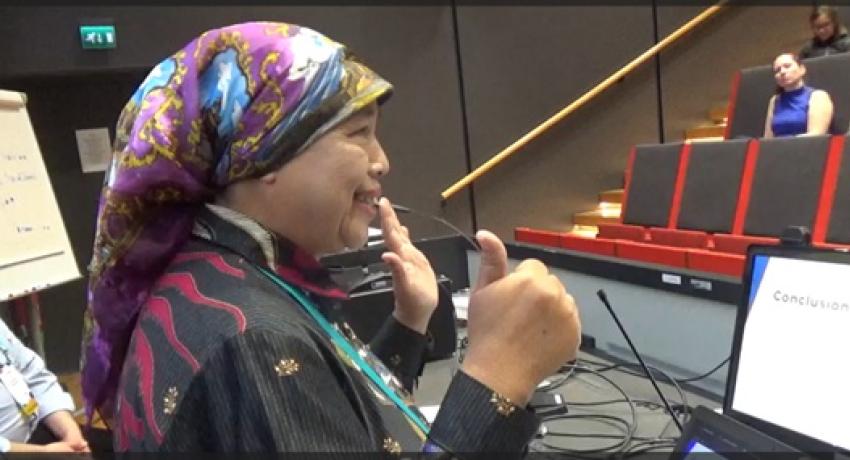Prof. Dr. Kun Setyaning Astuti, M.Pd., a lecturer in the Department of Music Education at the Faculty of Languages, Arts, and Culture, Universitas Negeri Yogyakarta (UNY), recently presented and trialed her innovative research findings at the 36th International Society for Music Education (ISME) Conference held at the University of Sibelius, Finland. The conference, founded 72 years ago, brought together over 2,000 music educators worldwide, providing an opportunity for Prof. Kun to showcase her research funded by the DRTPM DIKTI National Competitive Grant 2024.
Her research, titled "Creating a Musical Atmosphere Through Chord Progressions: An Innovative Learning Approach to Developing Students’ Musical Intelligence and Productivity," addresses challenges in music education, where the focus often leans heavily on theoretical mastery rather than cultivating aesthetic appreciation through musical experiences. Prof. Kun emphasized the need for teaching practices that incorporate musical elements to foster students' emotional and cognitive engagement with music.
The proposed method utilizes continuous chord progressions to create an immersive musical atmosphere in the classroom. This approach, inspired by collaborative research involving institutions such as Utrecht University and Hogeschool Voor De Kunsten Utrecht, draws on the Dutch model of music education. The research revealed that chord progressions effectively stimulate students' musicality, enabling them to compose melodies. Prof. Kun further developed this concept to empower students to create unique musical works tailored to their abilities and experiences.
Prof. Kun's method was successfully demonstrated during a parallel session at the ISME Conference. Participants, including music educators from various countries, validated its applicability across cultural contexts. The findings also align with Howard Gardner's theory of multiple intelligences, reinforcing the concept that musical intelligence is an intrinsic human capability.
The conference featured prominent keynote speakers, including Dr. André de Quadros of Boston University and scholars from the Sibelius Academy, University of the Arts Helsinki. It also hosted poster sessions, musical performances, and visits to the Sibelius Museum, celebrating Finland's rich musical heritage.
This groundbreaking research not only enhances the pedagogical landscape of music education but also underscores the cultural and intellectual significance of music in shaping global education systems.





